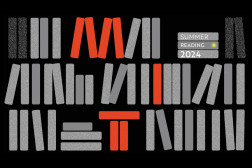Biography
Michael Fischer trained in geography and philosophy at Johns Hopkins, social anthropology and philosophy at the London School of Economics, anthropology at the University of Chicago. Before joining the MIT faculty, he served as Director of the Center for Cultural Studies at Rice. He conducts fieldwork in the Caribbean, Middle East, South and Southeast Asia on the anthropology of biosciences, media circuits, and emergent forms of life.
Research
(1) Anthropological methods for the contemporary world with specially attention to the interface between science and technology and anthropology. Co-editor, book series Experimental Futures: Technological Lives, Scientific Arts, Anthropological Voices.
(2) The anthropology of the biomedical sciences and technologies: the Genome Institute of Singapore and the Human Geonome Organization (HUGO) on social and ethical issues associated with genomics and with capacity building in the Asia-Pacific region.
(3) The anthropology of media circuits, with foci of regional attention on the Middle East, South and Southeast Asia.
Selected Publications
| 2010 | with B. Good, S. Willen, and M.J.D. Good, eds. A Reader in Medical Anthropology: Theoretical Trajectories, Emergent Realities. Blackwell. |
| 2009 | Anthropological Futures. Duke University Press. (Translation in Portuguese (Brazil) of 5 chapters, 2011). |
| 2004 | Mute Dreams, Blind Owls, and Dispersed Knowledges: Persian Poesis in the Transnational Circuitry. Duke. 475pp. |
| 2003 | Emergent Forms of Life and the Anthropological Voice. Duke. 477pp. |
| 2003 | 2nd Edition. Iran: From Religious Dispute to Revolution. University of Wisconsin Press. (with new introduction). |
| 1999 | 2nd Edition. Anthropology as Cultural Critique: An Experimental Moment in the Human Sciences (with George Marcus). University of Chicago Press. 228pp. (with new introduction). Translations in Chinese (2004), Croatian (2004); Korean (2006). Translation into Hungarian of chapter 6 in Helikon (2005: 1-2). |
| 1990 | Debating Muslims: Cultural Dialogues between Tradition and Postmodernity (with Mehdi Abedi). University of Wisconsin Press. 564 pp. |
Teaching
6.805 / STS.805
Ethics and the Law on the Electronic Frontier
Studies the growth of computer and communications technology and the new legal and ethical challenges that reflect tensions between individual rights and societal needs. Topics: computer crime; intellectual property restrictions on software; encryption, privacy, and national security; academic freedom and free speech. Students meet and question technologists, activists, law enforcement agents, journalists, and legal experts. Extensive use of the web for readings and other materials. Students engage in extensive written and oral communication exercises. STS.085 meets with 6.805 and carries HASS credit. 6.805 may be used as an Engineering Concentration Elective. Enrollment limited.
STS.S91
Advanced Topics in Social Theory: Biopoliotics, Bioeconomics, Biopolises and the Twenty-First Century
Addresses a special topic in Science, Technology and Society which is not offered in the regular curriculum.
HST.934J / STS.449J
Introduction to Global Medicine: Bioscience, Technologies, Disparities, Strategies
Exploration of basic themes in social medicine via a specific examination of issues in global medicine. The course takes as its challenge to understand new paradigms for global health that focus on providing complex medical services to treat complicated health conditions (e.g. multi-drug resistant TB, HIV/AIDS, and mental health problems) in low resource settings. Special attention given to the development of new technologies or adapting existing technologies in ways that enable new solutions to global health problems, as well as overcoming barriers to translation of medical technologies for use in settings of great need. Addresses classic themes of social inequalities and health disparities, and issues such as patenting and the development and delivery of pharmaceuticals or other biotechnologies in international context. Presentations by Harvard faculty involved in global health, basic or clinical research with a global reach, or medical humanitarian activities, in addition to class discussion.
STS.900 (also Harvard Anthro 2795)
Medical Anthropology: Theoretical Trajectories, Emergent Realities
Provides a critical reading of the history of medical anthropology to the present. Focuses on theoretical perspectives and debates, as well as methodologies and positioning of actors in the field.

